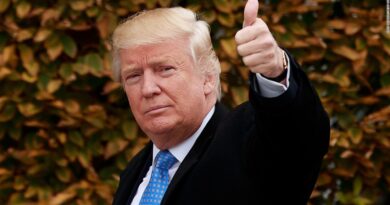EDITORIAL: When a conspiracy theory is actually just a theory

A friend says he doesn’t always believe the news when it first is reported. He likes to let three or four days go by to see how everything shakes out, and then determine whether he believes some initial reports.
That hurts modern American journalism. When people just don’t believe the press–at least when they don’t take it for granted that the press is telling the truth–that hurts democracy. It adds to doubts about elections, and vaccines, and any number of other subjects. But we hasten to add that we don’t blame folks who question the inner workings of modern American journalism. The fault is entirely ours. That is, modern journalism.
Remember when the talking heads in the media snickered at Tom Cotton for suggesting that the covid-19 virus could have been leaked from a lab in China? That was 15 months ago.
This newspaper’s Frank Lockwood reported last week that even experts quoted in news stories at the time can’t entirely dismiss the possibility. Here is Frank Lockwood’s lede in Sunday’s paper:
Fifteen months after accusing U.S. Sen. Tom Cotton (R-Ark.) of spreading a “debunked” covid-19 conspiracy theory, The Washington Post on Friday added a correction to its story acknowledging that it can’t back up some of the story’s claims–and never could.
The Feb. 17, 2020, article accusing Cotton of conspiracy-mongering now bears this correction: “Earlier versions of this story and its headline inaccurately characterized comments by Sen. Tom Cotton (R-Ark.) regarding the origins of the coronavirus. The term ‘debunked’ and The Post’s use of ‘conspiracy theory’ have been removed because, then as now, there was no determination about the origins of the virus.”
Well.
Even worse, one of the experts quoted in that Post story tells this paper that some of his comments, which might have supported a leaked-lab theory, were left out of the original story. He emailed this to the paper:
“The experience–being quoted in the Feb. 17 [2020] Washington Post article in a manner that materially misrepresented my views–was eye-opening. Watching ‘the first rough draft of history’ being written as a partisan exercise, rather than a journalistic exercise, was dismaying.”
It took over a year to get that into the papers. Maybe our friend’s three- to four-day rule isn’t adequate.
NB: Last week, President Joe Biden called for another round of investigation by this nation’s intelligence community. As Daniel Patrick Moynihan once said, intelligence isn’t to be confused with intelligence. But word is that even this current presidential administration questions whether the covid-19 bug made a natural jump from animals to humans, or whether it could have been produced in a lab. (That’s not to say it was intentionally tossed into the environment; it could have been a horrible mistake.)
The Red Chinese are furious because that never happened. Besides, the Americans probably did it. They have their own conspiracy theories, which include an American covid-19 birthplace, and our spooks somehow managing to smuggle it into Wuhan.
But back to Sen. Tom Cotton. Early on, he asked officials to at least look into the possibility that the thing had leaked from a lab. Why? Because the virus first appeared, and ignited, in Wuhan, China, which just so happens to be where the Wuhan Institute of Virology is located. And if you want even more coincidence, the WIV studies, and experiments with, coronaviruses.
“The question is,” Tom Cotton told this paper last week, “why did the media reject this theory that is obviously plausible and reasonable and should have been investigated carefully and thoroughly by the media from the very beginning? It’s because I was the one saying it. It’s because it might somehow help Donald Trump’s re-election campaign. Now that he’s no longer in office, the media’s taking a second look at it.”
And that’s the story, stated simply.
Not only is the media taking a second look; so is the United States government. Whether covid-19 jumped from a bat to a human, or whether it jumped from a lab coat’s shirtsleeve to an innocent, it’s not going to comfort the families of millions who have died worldwide.
But it could provide valuable lessons for humankind. We should note, just for the record, that that includes journalists.


